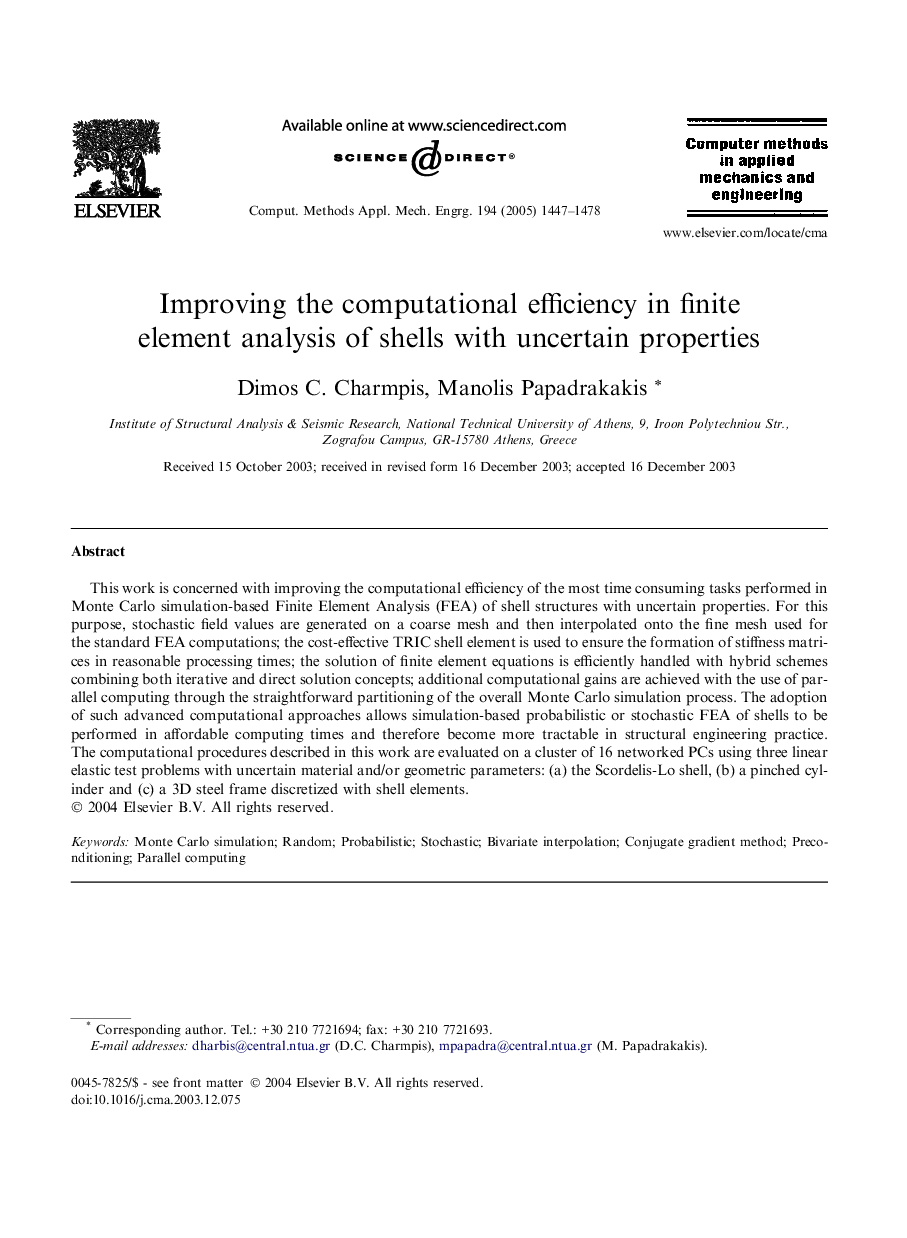| Article ID | Journal | Published Year | Pages | File Type |
|---|---|---|---|---|
| 9667098 | Computer Methods in Applied Mechanics and Engineering | 2005 | 32 Pages |
Abstract
This work is concerned with improving the computational efficiency of the most time consuming tasks performed in Monte Carlo simulation-based Finite Element Analysis (FEA) of shell structures with uncertain properties. For this purpose, stochastic field values are generated on a coarse mesh and then interpolated onto the fine mesh used for the standard FEA computations; the cost-effective TRIC shell element is used to ensure the formation of stiffness matrices in reasonable processing times; the solution of finite element equations is efficiently handled with hybrid schemes combining both iterative and direct solution concepts; additional computational gains are achieved with the use of parallel computing through the straightforward partitioning of the overall Monte Carlo simulation process. The adoption of such advanced computational approaches allows simulation-based probabilistic or stochastic FEA of shells to be performed in affordable computing times and therefore become more tractable in structural engineering practice. The computational procedures described in this work are evaluated on a cluster of 16 networked PCs using three linear elastic test problems with uncertain material and/or geometric parameters: (a) the Scordelis-Lo shell, (b) a pinched cylinder and (c) a 3D steel frame discretized with shell elements.
Keywords
Related Topics
Physical Sciences and Engineering
Computer Science
Computer Science Applications
Authors
Dimos C. Charmpis, Manolis Papadrakakis,
